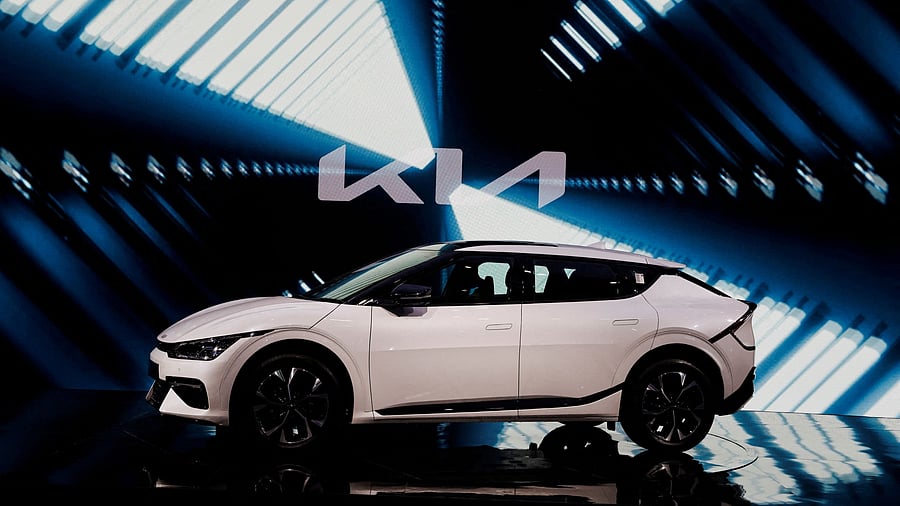
Kia India's EV6, an electric vehicle. File Photo
Reuters
Bengaluru: At the Karnataka Global Investors Meet on Wednesday, the state government unveiled a new Clean Mobility Policy offering a slew of benefits for companies operating in the electric vehicles (EV) sector. The policy aims to create 1 lakh jobs and attract Rs 50,000 crore worth of investments by 2030.
The aim of the policy is “To position Karnataka as the premier destination for clean mobility vehicle manufacturing by leveraging strategic advantages and nurturing a skilled workforce to support sustainable growth and create a comprehensive clean mobility vehicle eco-system in the state”, according to the policy document.
The objectives of the new policy are to make Karnataka the top destination in Asia for clean mobility technology, production and electric vehicle adoption, including a robust charging infrastructure network or hydrogen stations in the state.
According to the new policy, the state will provide incentives and concessions for setting up EV and related component plants and will establish clean mobility clusters.
It will also support creation of common infrastructure and testing facilities and will look to boost research, innovation and skill development.
“The government will facilitate and support manufacturing of clean mobility vehicles, components like battery pack, cells and cell components, motors, hydrogen tanks, fuel stack, power electronics and EV electrical, charging infrastructure, hydrogen stations, testing infrastructure, recycling of batteries and R&D for the sector,” the document stated. The state has already exempted payment of taxes on categories of EVs including e-rickshaws and e-carts, except for cars, jeeps, omni buses and private service vehicles run on electricity.
The policy will offer a number of incentives to MSMEs in the space, like capital subsidies, exemption from stamp duties and registration charges, reimbursement of land conversion fee, and exemption from electricity tariffs. It has earmarked three EV clusters in Chikkaballapur, Dharwad and Ramanagara.
“To support last mile connectivity, e-rickshaws/EV auto rickshaws will be encouraged and supported by the Transport and Urban Development Departments including BMRCL, KRIDE, BMTC, KSRTC, etc., while keeping in mind the provisions under the purview of the Motor Vehicle Act,” the policy stated. It said that existing two wheelers, three wheelers and four wheelers, passenger and cargo vehicles, will be encouraged for retrofitting with regulation compliant EV components.
The new policy comes after the earlier Electric Vehicle and Energy Storage Policy from 2017. The state has already attracted EV investments totaling Rs 25,000 crore, and has around 2.5 Lakh EVs registered, the third highest in India. At present, it has 5,403 charging stations installed by public and private agencies.